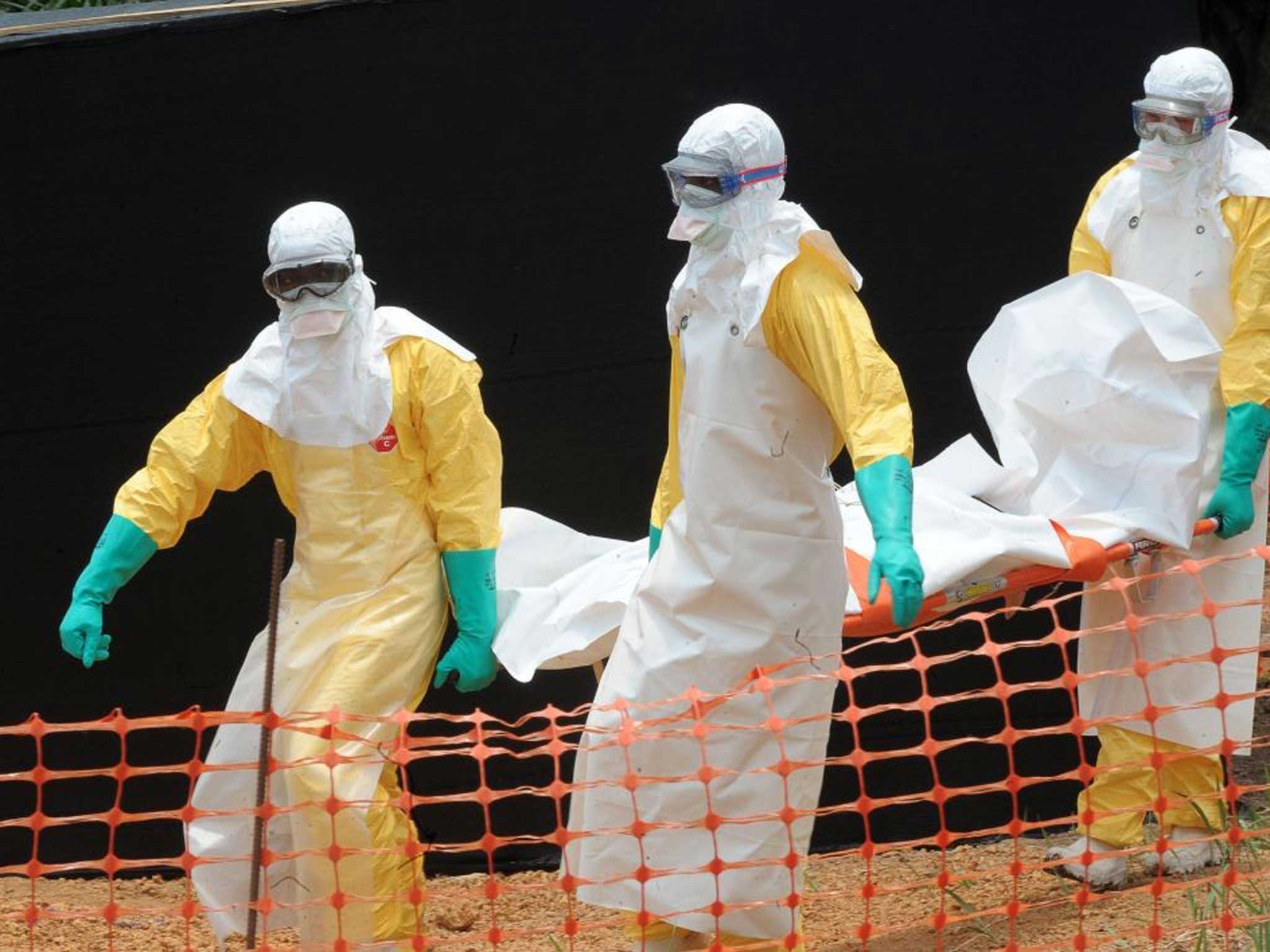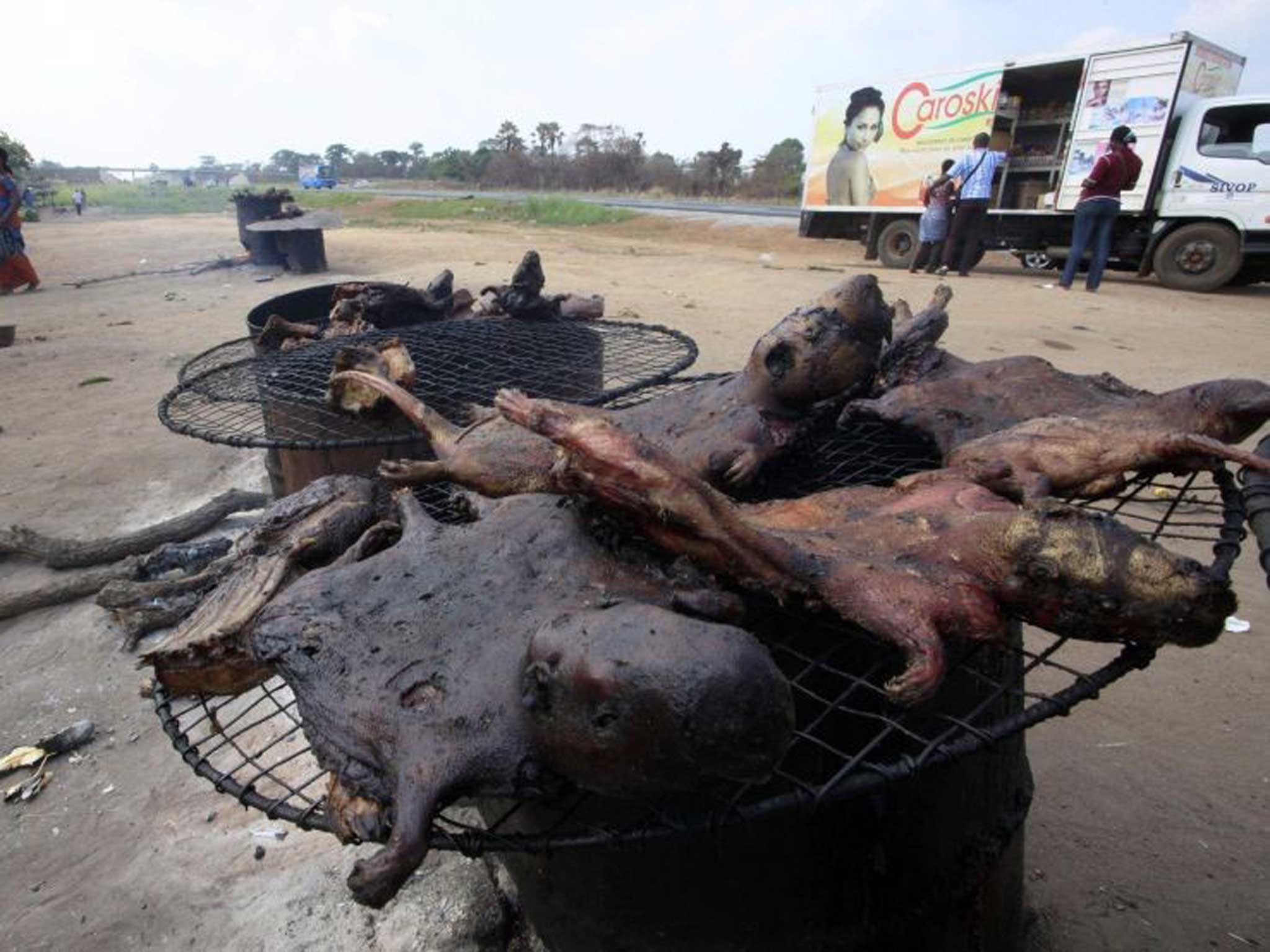Panic as deadly Ebola virus spreads across West Africa
Mob blames government for not quarantining a patient carrying the disease

When everyone is an apparent threat, a potential carrier of the deadly Ebola virus, panic inevitably rises. Yesterday, as rumours spread that Ebola could be caught by breathing the same air as the victims, that fear turned into violence.
Since the outbreak of the deadly strain of Zaire Ebola in Guinea in February, around 90 people have died as the disease has travelled to neighbouring Sierra Leone, Liberia and Mali. The outbreak has sent shock waves through communities who know little of the disease or how it is transmitted. The cases in Mali have added to fears that it is spreading through West Africa.
A spokesman for the medical charity Médecins Sans Frontières (MSF) said yesterday that a treatment centre where patients were isolated in Macenta, 265 miles south-east of Guinea's capital, Conakry, had come under attack from an "angry crowd" who accused health workers of bringing the disease to the town, where at least 14 people have died from Ebola.
"We have evacuated all our staff and closed the treatment centre," the MSF spokesman Sam Taylor said. "We're working with the authorities to try and resolve this problem as quickly as possible so we can start treating people again." He later told Bloomberg: "We fully understand that the outbreak of Ebola is alarming for the local population, but it is essential in the fight against the disease that patients remain in the treatment centre."

It was not clear how many people had been injured in the incident. A government statement said the support of aid groups such as MSF and the British Red Cross was essential. It called for "calm and serenity to enable our partners to support us to eradicate this epidemic" and added: "Only the recognition of the existence of the disease will help in the fight against it."
There is no cure for Ebola, which causes fever and severe bleeding. Aid workers have described the outbreak in West Africa as an "unprecedented epidemic".
Trust in the authorities in Conakry reached a low ebb on Friday, with many residents blaming the government for not immediately quarantining an individual who was said to have carried the virus to the capital from the remote and heavily-forested south, where the bulk of the cases are concentrated. Sixteen cases have been reported in Conakry, of which five people have died, a World Health Organisation spokesman said.
"How can we trust them now? We have to look after ourselves," Dede Diallo, a Conakry resident who stopped working and has kept her children at home since the outbreak, told the Associated Press.
Dr Adinoyi Ben Adeiza, from the International Federation of the Red Cross, was part of the team tasked with tackling Ebola when it broke out in Uganda in 2012. Dr Adeiza told The Independent on Sunday: "The only thing that can be done is to prevent it spreading."
He added: "This is a major challenge for countries such as Guinea which have weak health systems, mainly because [they don't have] adequate resources... to set up isolation centres for affected people."
In London, the Foreign Office warned Britons travelling to Guinea to maintain strict standards of hygiene and avoid eating bushmeat.
Join our commenting forum
Join thought-provoking conversations, follow other Independent readers and see their replies
Comments